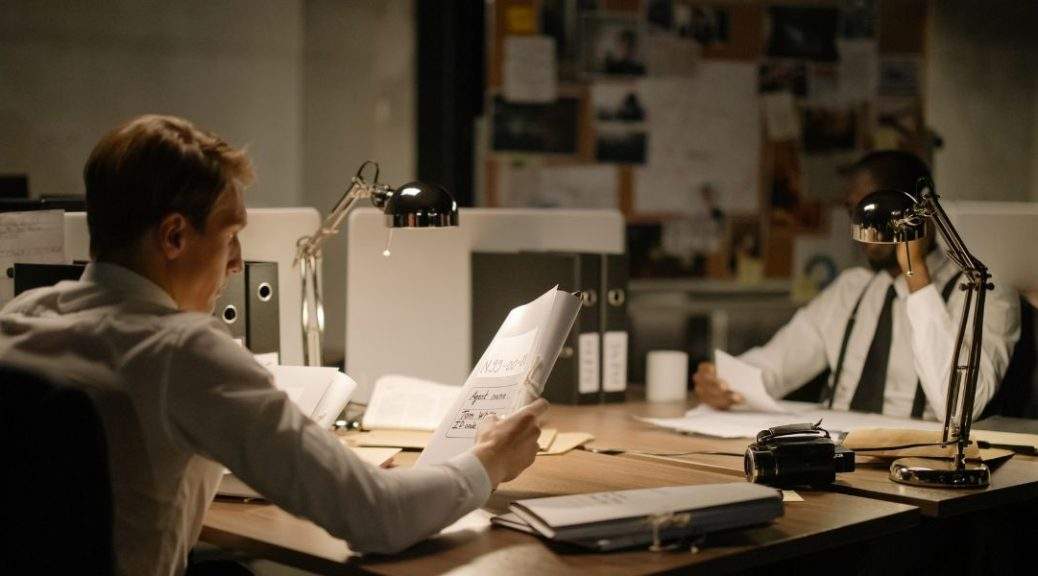Introduction
Have you ever found yourself needing to uncover hidden truths? Perhaps you’re suspicious of a cheating spouse, concerned about a child’s well-being, or looking for missing persons. In such cases, the idea of hiring a private investigator may have crossed your mind. While it may seem like an exciting and effective way to gather information, it is important to understand the potential risks and legal ramifications involved in this decision.
In this comprehensive guide, we will explore the various risks associated with hiring a private investigator and provide valuable insights to help you make an informed decision. We will address concerns related to finances, legality, ethics, reputation, and security. So before delving into the world of private investigation, let’s understand the potential pitfalls involved.
I. Financial Risks
Hiring a private investigator often comes at a significant cost. These professionals charge varying rates, depending on factors such as the complexity of the case, required expertise, and location. It’s essential to be aware of the financial risks associated with their services, as some investigators may overcharge or employ questionable pricing tactics.
To safeguard yourself financially:
- Set a realistic budget before hiring a private investigator.
- Research and compare the rates offered by different investigators.
- Seek transparency in financial agreements and ensure all fees are clearly outlined in a written contract or agreement.
- Be cautious of investigators who demand upfront payments without providing proper documentation.
II. Legal Risks
The legality of hiring a private investigator largely depends on the laws and regulations in your jurisdiction. While private investigation is generally considered legal, it is crucial to verify the investigator’s licensing and compliance with relevant regulations. By working with an unlicensed or unethical investigator, you may expose yourself to legal risks and potential consequences.
Here are some key considerations:
- Ensure the private investigator holds a valid license in your jurisdiction.
- Research the laws pertaining to private investigation in your area to have a clear understanding of the boundaries.
- Beware of investigators who engage in illegal activities or violate privacy rights during their operations.
III. Ethical Risks
Hiring a private investigator raises ethical concerns, particularly regarding invasion of privacy and relationships. The investigator’s actions and methods may affect trust, personal boundaries, and potentially even legal consequences.
To navigate the ethical risks:
- Reflect on your personal values and weigh the potential impact of hiring an investigator on your relationships.
- Consider open communication, counseling, or legal advice as alternative approaches to addressing your concerns.
- Seek permission and consent from individuals involved, whenever possible, to avoid unnecessary ethical dilemmas.
IV. Reputation Risks
Utilizing the services of a private investigator can sometimes damage your reputation, especially if the discovery becomes public knowledge. The stigma surrounding hiring an investigator can lead to negative perceptions and consequences, such as strained relationships or diminished trust.
Tips to protect your reputation:
- Evaluate the necessity of hiring a private investigator and consider less invasive alternatives, such as open communication or professional mediation.
- Preserve trust by maintaining confidentiality and only sharing the necessary information with the investigator.
- Strive for transparency and open communication with parties affected by the investigation to minimize potential damage.
V. Security Risks
Sharing personal and sensitive information with a private investigator poses potential security risks. It’s crucial to exercise caution and ensure the confidentiality of your data. Working with untrustworthy investigators could result in data breaches or misuse of information, leading to severe consequences.
To safeguard your security:
- Thoroughly research the investigator’s background, reputation, and reviews.
- Ask about the measures taken to protect your personal information and the expected handling of gathered data.
- Consider signing non-disclosure agreements to enforce confidentiality.
VI. Alternatives and Precautions
Before resorting to hiring a private investigator, it’s wise to explore alternative options and take precautionary measures. While investigators can be valuable assets in certain situations, exhausting other approaches first may save you from unnecessary risks and expenses.
Consider the following:
- Evaluate the urgency and necessity of hiring an investigator. Is there a possibility of resolving the issue through open dialogue, professional counseling, or legal channels?
- Conduct due diligence by thoroughly vetting potential investigators. Seek recommendations, read reviews, and verify licenses.
- Establish clear objectives and establish a written agreement outlining the agreed scope, costs, and expected deliverables.
Conclusion
While hiring a private investigator may offer a tempting solution to uncover hidden truths, it is crucial to navigate the associated risks with caution. This blog has explored the financial, legal, ethical, reputation, and security risks involved, providing you with the knowledge necessary to make informed decisions.
Remember, it is essential to research, choose reputable investigators, and carefully consider alternatives before embarking on a private investigation journey. By doing so, you can mitigate risks, protect your interests, and ensure the best possible outcome without compromising your integrity or well-being.



